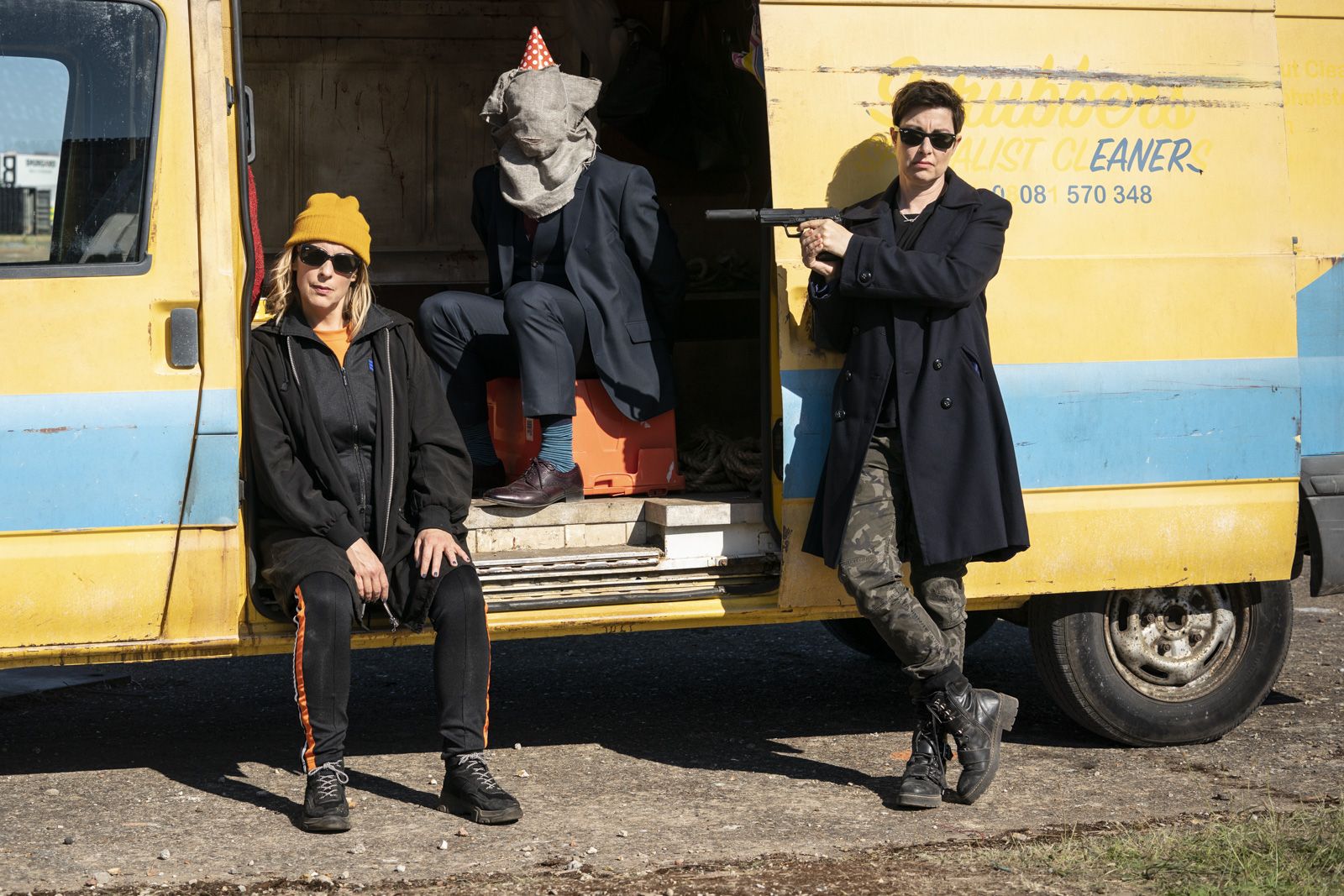The latest sitcom series that NBC’s Peacock has taken from overseas (after “Intelligence” from last month) is “Hitmen,” a comedy that mixes pitch-black humor with rapid, dry banter between the all-star duo of Mel Giedroyc and Sue Perkins. Americans might recognize the two as the original hosts for “The Great British Baking Show” (one of their many ventures since starting as a duo in the ’90s), and it’s amusing alone to see them here as neurotic daytime killers, even if their comic scenarios here can be big misses or big hits. Thanks to their always reliable chemistry, “Hitmen” is funny enough with its dark comedy that makes for equally light viewing.
In the series created by Joe Markham and Joe Parham, Giedroyc and Perkins play two women hired by the mysterious Mr. K, who is unseen. They travel around in a van that only looks like a service vehicle, but the inside is covered in stains of blood, handcuffs, chains, various weapons, evidence of the various targets they’ve captured and sometimes killed in their van. Each episode of “Hitmen” checks in with Jamie (Giedroyc) and Fran (Sue Perkins) as they tackle a new assignment, while the lighter sides of their personalities start to peek out and almost compromise the mission. It’s apparent that they’re good shots, and while Jamie is slightly sillier than Fran, they are both skilled at a business that’s shown to be fully of kooky targets.

Markham and Parham have created an animated, small world where the behavior is unmistakably childish, especially when they go up against their rival hitman Liz (Tonya Cornelisse) and her much friendlier associate Charles (Asim Chaudhry). It’s common for a lot of the episodes to base themselves around frantic, doomed characters who are silly by design (like the guy brought out to the woods who fears bugs more than death), and to then mine that tension for 20 minutes, getting sporadic laughs out of the surprising casual approach Fran and Jamie have to their work. In a testament to the show’s tone, it can get away with killing off naive supporting characters, sometimes with a point blank shot, without making us turn on Fran and Jamie. It helps, too, that everyone on set is committed to the parody of the story, like how Sian Clifford steals a lot of moments in episode two, looking like she simply walked on set to make fun of a greedy corporate shill archetype.
Performing and editing comedy is mighty difficult, and yet easygoing is one of the best words to describe “Hitmen.” That’s not a bad thing. It’s very straightforward with its premise, as episodes usually feature the two friends trying to corral their latest assigned kill, and getting close to blowing it. Most episodes feature five characters tops, including the main women, and raise the stakes with some punchy violence. Because it’s so dialogue-driven, the droll parts of the scripts can make for some drier episodes than others—even if the series is committed to a strange bits like a deadly soy allergy or a murderous woman who turns people into dolls, sometimes an episode can feel more inert than it’s been designed.
It doesn’t help that the story doesn’t build to much, though it does have funny premises and set pieces—there’s even a random, full-on Simon and Garfunkel visual reference for the fun of it, complete with a music cue for “The Boxer.” Only by the last episode does “Hitmen” seem like it’s adding up to something, an anticlimactic big reveal that shrugs off a greater sense of interesting world-building. It’s that looseness that sometimes backfires on “Hitmen,” making the show easy to watch and be amused by, but also a challenge to be truly invested in.
All six episodes screened for review.












